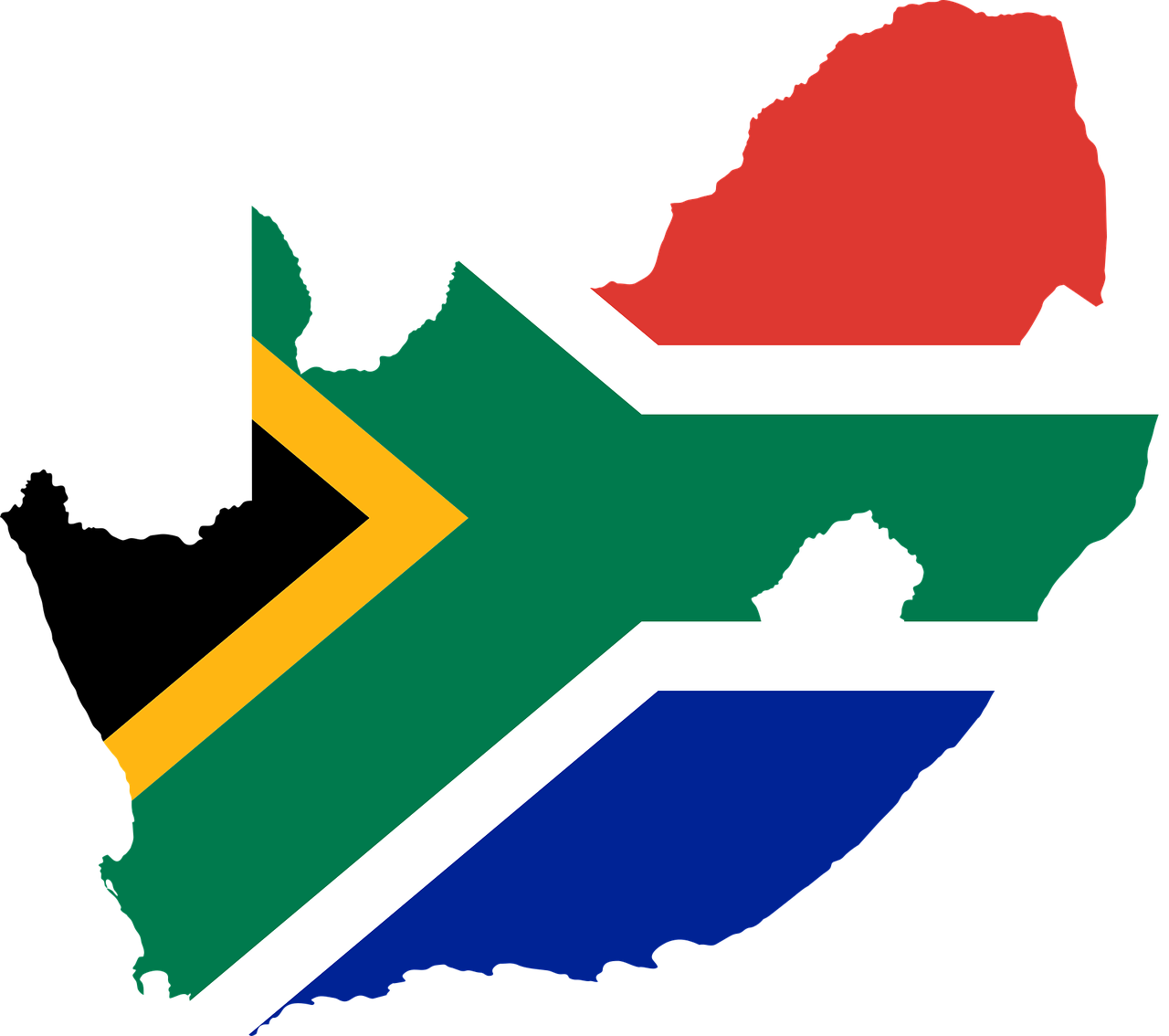South Africa
Overview
South Africa, often referred to as the "Rainbow Nation," is a melting pot of cultures, languages, and histories. Located at the southernmost tip of the African continent, it boasts a diverse landscape, from the iconic Table Mountain in Cape Town to the bustling streets of Johannesburg, the lush vineyards of the Western Cape, and the expansive Kruger National Park.
Johannesburg, the country's largest city, is its economic powerhouse, reflecting South Africa's industrial might and entrepreneurial spirit. With its skyscrapers, historic neighborhoods, and vibrant arts scene, it stands as a testament to the nation's complex past and its aspirations for the future. Cape Town, with its scenic beauty and rich history, is not only a major tourist destination but also a cultural and legislative hub.

Key indicators

Population

GDP per capita

Nominal GDP

Purchasing Power Parity GDP

Main exports

Foreign direct investment

Stock market capitalization

GDP growth rate
- Economic Snapshot
- Business Environment
- Startup Ecosystem
- Infrastructure & Technology
- Opportunities & Challenges
- Cultural Insights
South Africa's economy is multifaceted. Historically rooted in the mining sector, with gold, diamonds, and platinum being key exports, the nation has diversified its economic base over the years. Agriculture plays a significant role, with the country being a major producer of maize, citrus fruits, and wine. The Western Cape's vineyards are renowned globally, attracting wine enthusiasts and tourists alike. Manufacturing, from automobiles to textiles, is another pillar, with companies like BMW and Volkswagen having significant operations in the country.
The financial sector in South Africa is one of the most sophisticated globally. Johannesburg Stock Exchange (JSE) stands as one of the world's top 20 stock exchanges. Banking, insurance, and asset management services are well-developed, with South African financial institutions having a significant presence across the African continent. Tourism is another key sector, with attractions ranging from wildlife safaris to cultural tours drawing millions of visitors annually.
South Africa offers a conducive environment for business. Its infrastructure, from ports to railways to telecommunications, is among the best in the continent. The regulatory environment is robust, with clear guidelines for business operations, investment, and trade. The government, recognizing the need for economic growth and job creation, has initiated various programs to attract foreign investment. Special Economic Zones (SEZs), spread across the country, offer incentives for businesses, from tax breaks to streamlined customs procedures.
The nation's labor market is diverse. While skills shortages in certain sectors remain a challenge, initiatives are underway to enhance vocational training and higher education. South Africa's business culture is a blend of indigenous and Western practices, reflecting its colonial past and its African identity.
The startup scene in South Africa is vibrant. Cities like Johannesburg, Cape Town, and Durban have become hubs of innovation, with numerous tech startups emerging in sectors ranging from fintech to healthtech to e-commerce. Incubators and accelerators, both government-backed and private, offer support to budding entrepreneurs. Access to funding is improving, with venture capitalists, both domestic and international, showing interest in South African startups.
Collaboration between academia, industry, and government is fostering a culture of innovation. Universities like the University of Cape Town and the University of the Witwatersrand are playing a pivotal role in research and development, ensuring that the startup ecosystem is not just vibrant but also sustainable.
South Africa's infrastructure is robust. The road network is extensive, connecting even the most remote areas. Ports like Durban and Richards Bay play a crucial role in the nation's trade. Air connectivity is excellent, with OR Tambo International Airport in Johannesburg being one of the busiest in Africa. On the technology front, South Africa is at the forefront of the digital revolution in Africa. Internet penetration is high, and there's a concerted push to enhance digital literacy and promote e-governance.
The country is also focusing on sustainable energy. While coal remains a significant source of energy, there's a growing emphasis on renewables, from solar to wind to hydroelectric power. Initiatives are underway to not just enhance power generation but also to ensure that it's sustainable and environmentally friendly.
South Africa, with its rich natural resources, strategic location, and advanced economy, offers immense opportunities. Sectors like renewable energy, agribusiness, tourism, and technology are particularly promising. The government's focus on industrialization, infrastructure development, and skills enhancement presents numerous opportunities for investors and businesses.
However, challenges persist. Socio-economic disparities, a legacy of the apartheid era, need addressing. Unemployment, especially among the youth, is a concern. Political uncertainties and issues related to land reform also pose challenges. However, the nation's resilience, democratic institutions, and vibrant civil society ensure that there's a continuous dialogue on these issues, with efforts underway to address them.
-
-
South Africa is a multicultural country with a rich history and heritage. The country is home to 11 official languages, each with its own unique culture and traditions. The most populous ethnic groups in South Africa are the Zulu, the Xhosa, and the Afrikaans.
-
South Africans are generally friendly and welcoming. They are also known for their strong sense of community and ubuntu (humanity).
-
Some of the most important cultural traditions in South Africa include:
-
Greetings: It is customary to greet people with a handshake and a greeting in their language. The most common greetings are "Sawubona" (Zulu), "Molo" (Sotho), and "Goeie dag" (Afrikaans).
-
Hospitality: South Africans are known for their hospitality. They often invite guests into their homes and offer them food and drinks. It is considered rude to refuse a South African's hospitality.
-
Dressing: South Africans dress in a variety of styles, depending on the occasion. However, it is important to dress respectfully when visiting South Africa. This means avoiding revealing clothing and dressing appropriately for the occasion.
-
Food: South African food is delicious and diverse. Some of the most popular dishes include:
- Biltong: A dried meat snack made from beef, venison, or ostrich.
- Boerewors: A type of sausage made from beef and pork.
- Braai: A South African barbecue.
- Bunny chow: A hollowed-out loaf of bread filled with curry.
-
Music and dance: South Africa has a vibrant music and dance culture. Some of the most popular South African musical genres include kwaito, gqom, and isicathamiya. Traditional South African dance is characterized by its energetic and graceful movements.
-
Here are some tips for businesses and investors operating in South Africa:
- Be respectful of South African culture and traditions. This includes being respectful of traditional customs and beliefs.
- Be patient and understanding. South Africans are generally relaxed and easy-going. It is important to be patient and understanding when doing business in South Africa.
- Build relationships. South Africans value personal relationships in business. It is important to build rapport with your South African counterparts before getting down to business.
- Be ethical and responsible. South Africans are looking for businesses that are ethical and responsible in their dealings.
-

Investment Landscape & Opportunities inSouth Africa
- Start-up & SME Investments
- Impact & Green Investments
- Government Bonds & Stock Market
- Public-Private Partnerships
- Foreign Direct Investments
- Commodities & Infrastructure Investments
- Real Estate Development
- Cultural and Creative Industries

Leading
startups in South Africa
Comming up soon

